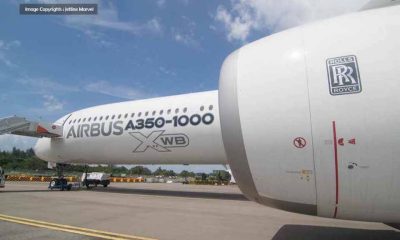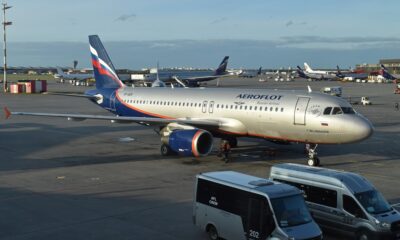Civil Aviation
Airbus Plans to Eliminate Contrails from Future Flights

Airbus continues to push the boundaries of aviation innovation, making air travel more sustainable with groundbreaking research and technological advancements.
Following its recent unveiling of a next-generation jet concept featuring open-fan engines and foldable wings—designed to achieve a 20-30% increase in fuel efficiency—Airbus is now turning its attention to a critical environmental challenge: contrail formation.
As part of its commitment to reducing aviation’s climate impact, Airbus, in collaboration with a consortium of 10 partners from four European countries, has launched PACIFIC, a pioneering project to study the effects of aviation’s non-CO2 emissions on Local Air Quality and Climate, with a particular focus on contrails.
Understanding Contrails and the Role of Sustainable Aviation Fuels (SAF)
Recent studies suggest that using Sustainable Aviation Fuels (SAF) could significantly reduce both soot particles and contrail ice crystals.
However, to fully grasp the environmental benefits, researchers need more data on fuel composition and how it interacts with engine processes. The PACIFIC project aims to bridge this knowledge gap by exploring the formation of soot during combustion and refining predictive models to anticipate its impact on emissions.
Using advanced measurement techniques, the study will analyze:
- Soot Formation Mechanisms – Examining how different fuel compositions influence soot emissions in aircraft engines.
- Fine Particle Emissions – Measuring the quantity of fine particles released at various engine power levels, from ground tests to real flight conditions.
- Contrail Development – Investigating how soot particles contribute to ice crystal formation and their role in contrail persistence.
- Climate Impact Assessment – Evaluating how fuel composition and engine settings affect contrail properties and their contribution to global warming.
A Step Towards Future Aviation Standards
By consolidating these insights, the PACIFIC project will support a cost-benefit assessment of various fuel options, providing valuable data for future aviation fuel regulations.
Airbus and its partners will conduct a three-year study to assess how different fuels influence emissions and contrail formation. The project will then select three fuels for ground-test evaluations, analyzing their environmental impact under different engine settings.
Expanding the Research Scope
Beyond its work in Europe, Airbus is also collaborating with major Canadian aerospace academic and research organizations to measure non-CO2 emissions from different fuel types. This global approach reinforces Airbus’ commitment to leading sustainable aeronautics research and shaping the future of eco-friendly aviation.
With projects like PACIFIC and next-generation aircraft designs, Airbus is paving the way for a cleaner, more sustainable future—one where aviation’s environmental footprint is significantly reduced, and contrails become a thing of the past.









